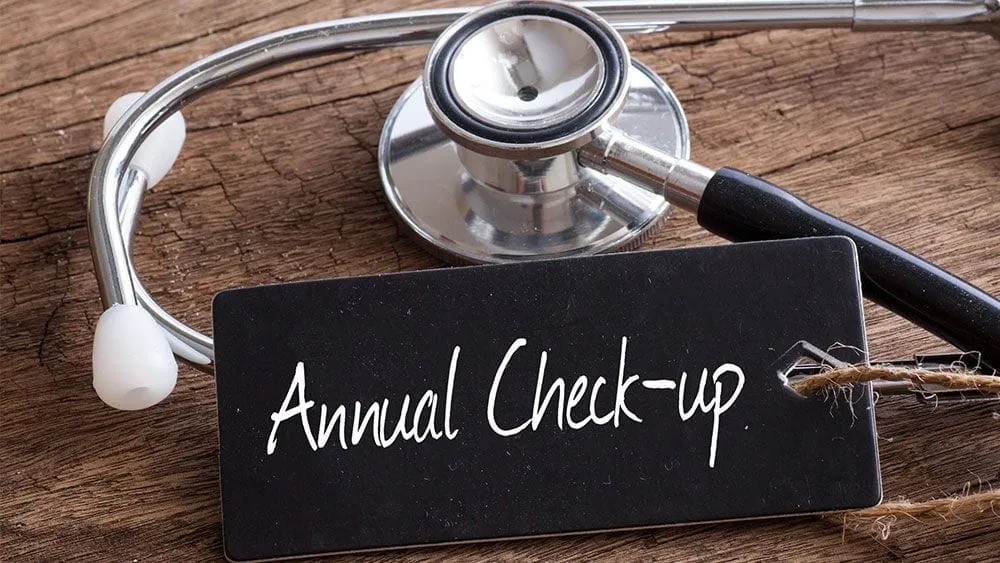The physical exam is an essential part of any doctor's visit.
Annual exams usually check your:
History, about your health, lifestyle behaviors like smoking, excessive alcohol use, sexual health, diet, and exercise. The doctor will also check on your vaccination status and update your personal and family medical history.
Vital Signs. These are some vital signs checked by your doctor: Blood pressure, Heart rate, Respiration rate, and Temperature.
Heart Exam, Lung Exam, Head and Neck Exam. Ears, Nose, Sinuses, Eyes, Lymph Nodes, Thyroid, and Carotid arteries may also be examined. Also, Abdominal Exam, Neurological Exam, Dermatological Exam, Extremities Exam.
Male Physical Exam
- An annual physical exam for men might also include:
- Testicular exam: A doctor can check each testicle for lumps, tenderness, or changes in size. Most men with testicular cancer notice a growth before seeing a doctor.
- Hernia exam: The famous "turn your head and cough" checks for a weakness in the abdominal wall between the intestines and scrotum.
- Penis exam: A doctor might notice evidence of sexually transmitted infections such as warts or ulcers on the penis.
- Prostate exam: Inserting a finger in the rectum lets a doctor feel the prostate for its size and any suspicious areas.
Female Physical Exam
A woman's annual exam might include:
- Breast exam. Feeling for abnormal lumps may detect breast cancer or benign breast conditions. The doctor will also check the lymph nodes in the underarm area and look for visual abnormalities of the breasts and nipples.
- Pelvic exam: The pelvic exam allows examination of the vulva, vagina, cervix, uterus and ovaries. Routine checks for sexually transmitted infections are often done. A Pap test and HPV test can screen for cervical cancer and help assess risk.
Laboratory Tests
- There are no standard laboratory tests during an annual physical. However, some doctors will order certain tests routinely:
- Complete blood count
- Chemistry panel
- Urinalysis (UA)
- Lipid panel (cholesterol test)
- Other labs may be necessary depending on your personal and family history.



